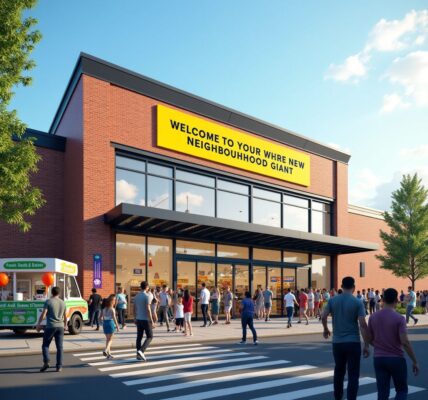In the fast-paced world of retail, particularly within the grocery sector, we are witnessing an increasing demand for retailers to adapt and respond to the needs of their communities. The recent humanitarian challenges have revealed the pivotal role grocers play in supporting local populations. This article explores how grocery retailers are actively engaging in relief efforts, serving as essential hubs of assistance in times of crisis.
One notable example is the response to natural disasters. During events such as hurricanes, wildfires, or floods, grocery stores often become crucial supply points. They not only provide food but also essential items like water, personal care products, and even battery-operated supplies that are vital during emergencies. Retailers like Kroger and Walmart have significantly ramped up their relief efforts, donating millions of dollars and essential items to affected areas. For instance, in the wake of severe flooding in Kentucky, Kroger contributed over $500,000 to aid recovery efforts while also mobilizing its stores to ensure that fresh food and supplies were available.
Moreover, grocery chains are enhancing their partnerships with local organizations to amplify their impact. By collaborating with nonprofits and community groups, grocers can better identify specific needs and tailor their efforts accordingly. A case in point is Albertsons’ collaboration with Feeding America, which has helped distribute food to millions in need. The partnership not only addresses immediate hunger issues but also fosters long-term support systems that help communities recover and rebuild.
Another aspect of grocers’ relief strategies is the incorporation of technology to streamline their operations. E-commerce platforms have proven indispensable, especially during crises when in-person shopping may be challenging. Retailers have adopted online ordering and delivery systems that facilitate access to essential goods without requiring physical store visits. For example, Instacart has partnered with a wide range of grocery retailers, making it easier for consumers to order supplies from home. This capability plays a critical role in maintaining food accessibility during emergencies, ensuring that vulnerable populations can receive necessary aid without added stress.
Additionally, grocers are taking proactive steps in promoting mental wellness through their community initiatives. Many retailers are offering counseling services and mental health resources tailored to the needs of staff and customers alike. By investing in mental health support, grocers not only aid in recovery but also contribute to the overall well-being of their local communities. This holistic approach demonstrates that grocery stores can be more than simple points of transaction; they can evolve into community care centers.
Furthermore, sustainability plays a critical role in grocery relief efforts. As these retailers respond to community needs, they are also incorporating environmentally friendly practices into their operations. For instance, some stores are focusing on reducing food waste by donating unsold, but still edible, products to local food banks. This not only addresses food insecurity but also reinforces a commitment to sustainable practices. Retailers are increasingly recognizing that a responsible approach to inventory management can yield positive social outcomes.
Marketing strategies have adapted as well, with grocers using their platforms to raise awareness about ongoing relief efforts. Social media, websites, and in-store promotions regularly feature information about how customers can contribute, whether through monetary donations at checkout or volunteer opportunities. These initiatives not only strengthen community ties but also enhance brand loyalty, as consumers are increasingly inclined to support businesses that actively engage in social responsibility.
In the competitive landscape of grocery retail, the ability to respond to community needs effectively is becoming a differentiating factor. Customers are more likely to gravitate toward brands that demonstrate compassion and commitment to social issues. As such, grocers are positioning themselves as more than mere storefronts; they are becoming integral parts of the social fabric.
As we look to the future, the expectation is that grocery retailers will continue to refine and enhance their relief efforts. From leveraging technology for efficient service delivery to fostering community partnerships and advocating for sustainability, grocers are stepping up to meet societal challenges. Their role in providing immediate support while promoting long-term resilience sets a precedent for how retail can positively impact society.
In conclusion, the grocery industry’s continued emphasis on relief efforts showcases its vital role in community well-being. As these retailers evolve to meet changing demands, their contributions extend beyond the aisles, helping to shape a more supportive and responsive society. Through dedication to service and strategic partnerships, grocery stores can genuinely make a difference, reinforcing their relevance in these crucial times.












